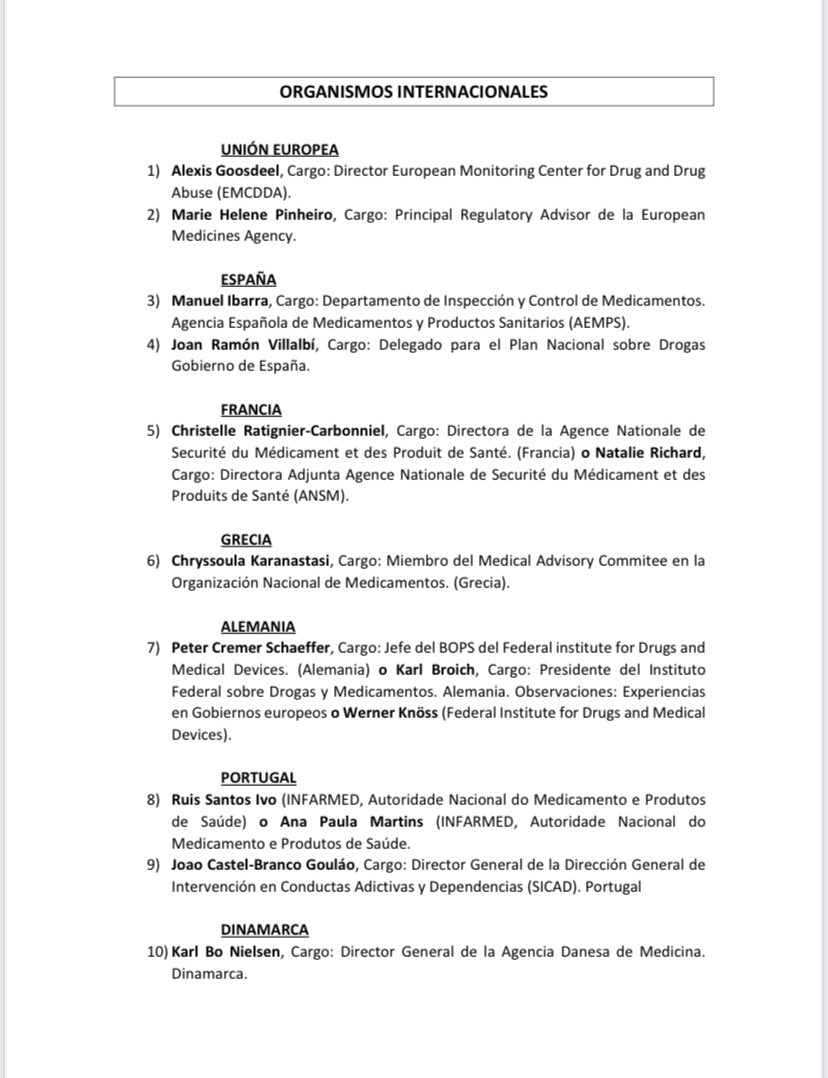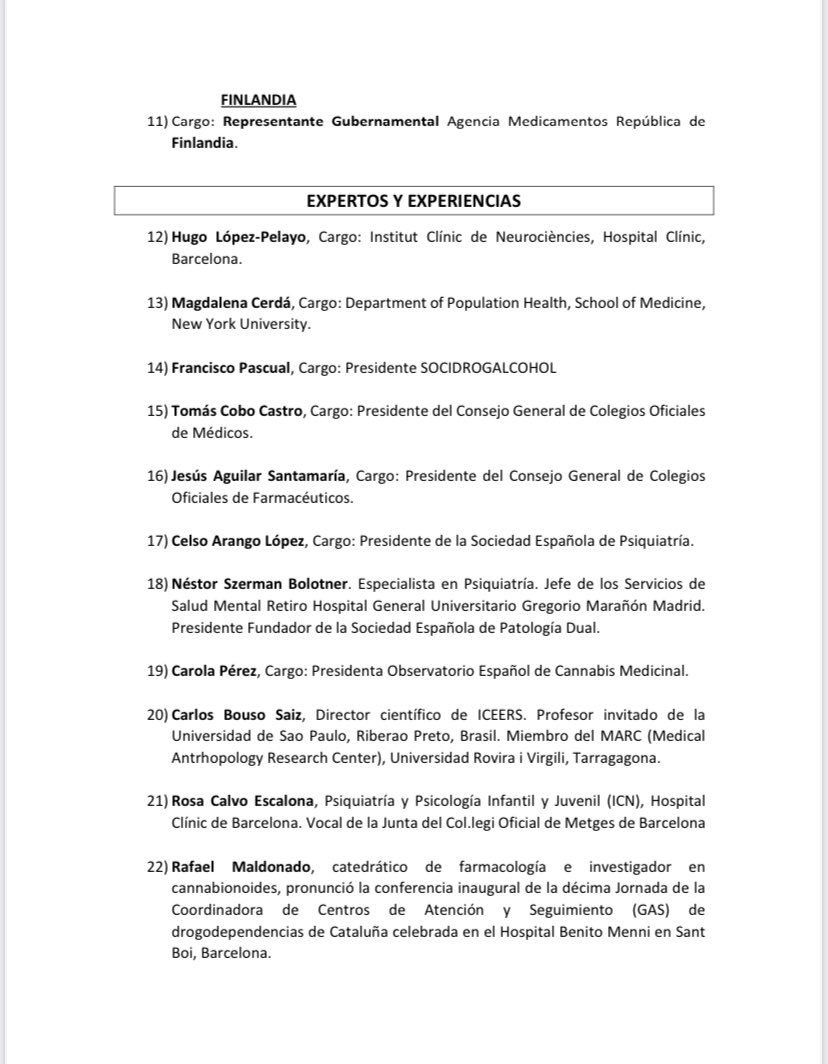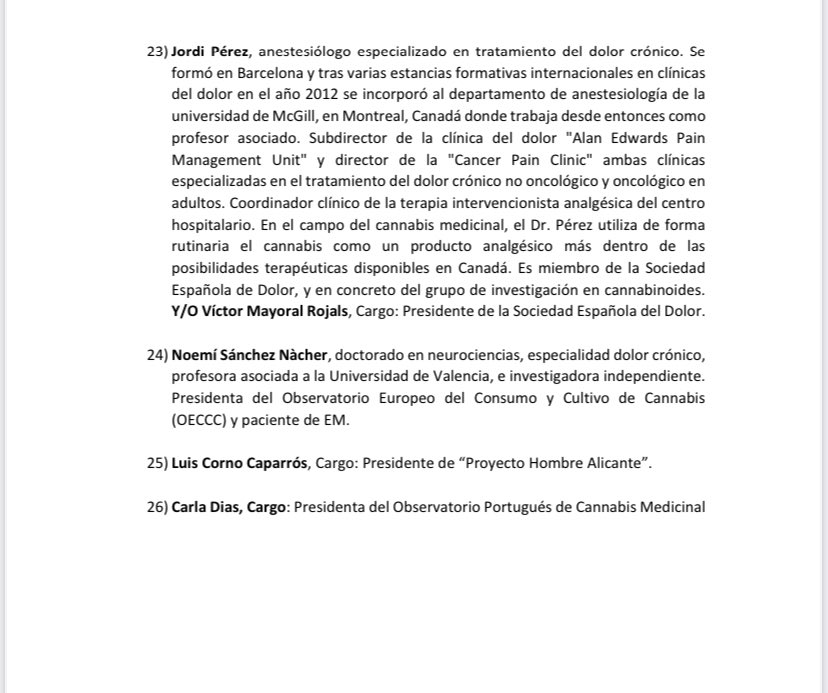Igor Domsac | February 2022
Dr. José Carlos Bouso, ICEERS’ Scientific Director, has been invited to contribute his expert perspective to a Congress subcommittee studying the regulation of therapeutic cannabis in Spain.
ICEERS is one of the few groups in the country to carry out studies on medical cannabis in human patients. The organization has also done research on members of Cannabis Social Clubs, which is a large-scale social model that the scientific community has ignored. Although we highly value Dr. Bouso’s participation in the subcommittee, we also agree with the criticism made by other organizations that the choice of experts was less than ideal. The group was clearly biased towards a vision focused on cannabis abuse rather than on its therapeutic potential.
“Despite the fact that this subcommittee is late and biased, we welcome the fact that it is finally taking place and that José Carlos and some other representatives of civil society, such as Noemí Sánchez and Carola Pérez, have been included. But we have seen prejudices from the beginning,” says Òscar Parés, ICEERS’ Deputy Director. “Firstly, when it comes to international organizations, there is no representation from countries with a more consolidated trajectory, such as Uruguay, Canada or Colombia. It is a shame, because there would be a lot of accumulated evidence there. And the subcommittee is all about gathering experiences and evidence from other countries” he adds.
Constanza Sánchez, ICEERS’ Director of Law, Policy and Human Rights, points out the obvious confirmation bias of the invited experts. “If you invite people to speak who don’t have much experience or who are basically against any kind of access to cannabis, they will come to the conclusion that medical cannabis should not be regulated because there is insufficient evidence. If the only funding is for research and people who are saying that prohibition is the right thing to do and cannabis is dangerous, then that’s what the evidence is going to show. The emphasis should be on funding other kinds of studies, and not just those that confirm the current policy.”
Lack of clinically experienced doctors
No doctors in Spain with clinical experience in medical cannabis have been invited to participate. “On the expert side, we also see a bias in the sense that there are few professionals in Spain who have clinical experience with cannabis. There are researchers with extensive experience in animal research. There are also doctors and psychiatrists with substantial expertise in caring for people who have developed cannabis use issues. But most of them are professionals with no links to patients. So the scale is clearly tilted towards the side of experts who have no contact with reality. They instead see it via a laboratory or in journals, and have previously positioned themselves against regulation” says Parés.
According to José Carlos Bouso, “I see little scope for this. The list of experts clearly drifts towards the formulation of the problems caused by cannabis, not towards the therapeutic solutions it provides. In Spain we have some of the best scientists and most experienced doctors on medical cannabis who have not been called upon. There is a huge black hole in the lack of knowledge about medical cannabis in this committee.”
In short, as Parés points out, “There is a bias towards conservative perspectives with no connection to the clinical reality of patients. Medical and clinical perspective is underrepresented, as well as the insight from patients and organised civil society. It also leaves out representatives of Cannabis Social Clubs, which are undoubtedly the main gateway to cannabis for patients due to the lack of regulation by the Administration.”
ICEERS in Congress
For all above stated reasons, ICEERS invites Congress to turn its attention to European countries where cannabis regulation has been a clear success (such as in Israel, Malta and the Netherlands). The perspective of civil society must also be considered when deciding on the future of Spanish cannabis regulation. We believe it is time to take advantage of the unique opportunity of this initiative to lead the change in Europe. To this end, Cannabmed has launched the #cannabisLEGAL campaign. It aims to give voice to all those individuals and groups who wish to contribute their views on this debate.
Below is the complete list of experts who will speak at the Congressional subcommittee to study medical cannabis in Spain:



Photo: Pxhere.
Categories:
NEWS
, Cannabis
, CANNABMED
, HUMAN RIGHTS
Tags:
medical cannabis
, cannabis associations
, regulation

